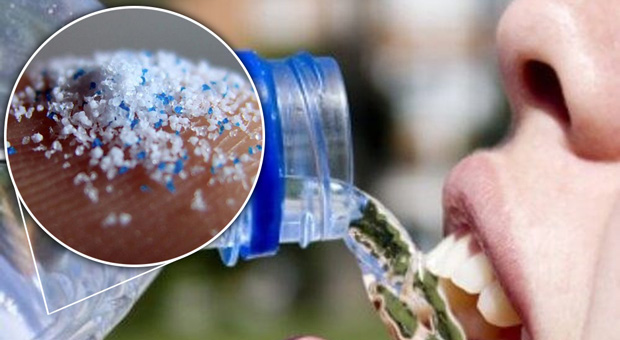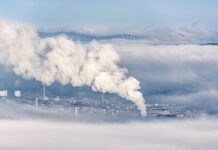This is Scott Amyx with today’s Climate Change Flash Briefing.
Waiter, can I have some more water, please? He offers you more water but with one caveat. It’s full of microplastics. Microplastics are very small pieces of plastic debris resulting from the disposal and breakdown of plastic products and industrial waste.
Groundwater make up about a quarter of the drinking water supply worldwide. It’s also what’s used to bottle water, make beer and wine. Because of their geology, groundwater aquifers are highly porous so they easily absorb contaminants from the surface above.
Researchers from the Illinois Sustainable Technology Center and Loyola University Chicago collected 11 groundwater samples from an aquifer near St. Louis and six others in northwestern Illinois. Only one sample came back microplastic-free. The researchers speculate the tiny plastic fibers they found are coming from household septic tanks, perhaps carrying runoff from laundry loads. Clothes have previously been identified as a key source of microplastic pollution, with each wash potentially releasing hundreds of thousands of tiny plastic fibers. In this latest study, the highest concentration of plastics found in a sample was around 15 particles per liter.
The researchers didn’t just find microplastics in the water. They also found medicine and household contaminants, supporting the idea that the particles originated in household septic systems.
Another study from the Leibniz-Institute of Freshwater Ecology and Inland Fisheries (IGB) warned that the impact of microplastics in soils, sediments and the freshwaters could have a long-term negative effect on our ecosystems throughout the world.
These reports remind us that our local water supplies are highly vulnerable. And whether microplastics enter our drinking water or fish in the ocean, they eventually make their way back to us.
Stay tuned next time to find out why protecting our marshlands could save lives and billions of dollars in coastal damage.


















